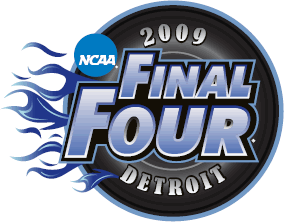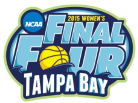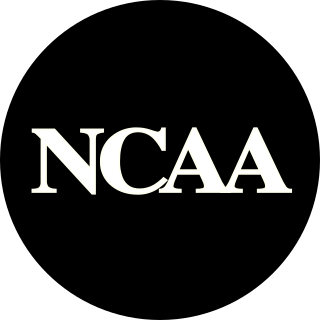
Andrew Tyler Hansbrough is an American former professional basketball player. He played in the National Basketball Association (NBA) for seven seasons, as well as internationally.

The 2005 NCAA Division I men's basketball tournament involved 65 schools playing in single-elimination play to determine the national champion of men's NCAA Division I college basketball. It began on March 15, 2005, and ended with the championship game on April 4 at the Edward Jones Dome in St. Louis.

The 2008 NCAA Division I men's basketball tournament involved 65 teams playing in a single-elimination tournament that determined the National Collegiate Athletic Association (NCAA) Division I men's basketball national champion for the 2007-08 season. The 70th annual edition of the tournament began on March 18, 2008, and concluded with the championship game on April 7, at the Alamodome in San Antonio, Texas.

The Duke–North Carolina rivalry refers to the sports rivalry between the Duke University Blue Devils and the University of North Carolina Tar Heels, particularly in the sport of basketball. It is considered one of the most intense rivalries in all of US-sports; a poll conducted by ESPN in 2000 ranked the basketball rivalry as the third greatest North American sports rivalry, and Sports Illustrated on Campus named it the #1 "Hottest Rivalry" in college basketball and the #2 rivalry overall in its November 18, 2003 issue. The intensity of the rivalry is augmented for many reasons. One reason is the proximity of the two universities—they are located only ten miles apart along U.S. Highway 15–501 or eight miles apart in straight-line distance. In addition, Duke is a private university whereas Carolina is a public school; the vastly different funding structures and cultures between the two further contribute to the intensity of the rivalry. One of the biggest reasons for this rivalry lied in the success of their respective basketball programs; almost every year, at least one of the schools is a contender to win the national championship.

The 2009 NCAA Division I men's basketball tournament involved 65 teams playing in a single-elimination tournament that determined the National Collegiate Athletic Association (NCAA) Division I men's basketball national champion for the 2008–09 season. The 71st annual edition of the tournament began on March 17, 2009, and concluded with the championship game on April 6 at Ford Field in Detroit, Michigan.

The North Carolina Tar Heels Men's basketball program is a college basketball team of the University of North Carolina at Chapel Hill. The Tar Heels have won six NCAA championships in addition to a 1924 Helms Athletic Foundation title (retroactive). North Carolina has won a record 133 NCAA tournament matchups while advancing to 31 Sweet Sixteen berths, a record 21 Final Fours, and 12 title games. It is the only school to have an active streak of reaching the National Championship game for nine straight decades and at least two Final Fours for six straight decades, all while averaging more wins per season played (20.7) than any other program in college basketball. In 2012, ESPN ranked North Carolina No. 1 on its list of the 50 most successful programs of the past fifty years.

The 2009–10 North Carolina Tar Heels men's basketball team represented the University of North Carolina at Chapel Hill. Their head coach was Roy Williams. The team played its home games in the Dean Smith Center in Chapel Hill, North Carolina, and is a member of the Atlantic Coast Conference. They were the defending National Champions. This season represented the 100th season of basketball in the school's history.

The 2015 NCAA Division I women's basketball tournament was played between March and April 2015, with the Final Four played April 5 & 7. The regional locations, after a one-year experiment allowing tournament teams to host, returned to four neutral sites: Oklahoma City, Spokane, Greensboro and Albany. The subregionals were played 20–23 March, while the regionals were played 27–30 March. This represented a change; in the past, the rounds were played starting on a Saturday and ending on a Tuesday. In 2015, the opening rounds and regionals were played starting on a Friday and ending on a Monday. The Final Four was played at Amalie Arena in Tampa, Florida. For only the third time in history, all four of the number one seeds made it to the Final Four.

The 2010–11 North Carolina Tar Heels men's basketball team represented the University of North Carolina at Chapel Hill in the 2010–11 NCAA Division I men's basketball season. The head coach was Roy Williams. The team played its home games in the Dean Smith Center in Chapel Hill, North Carolina and is a member of the Atlantic Coast Conference. They finished the season 29–8, 14–2 in ACC play to win the conference regular-season championship. They advanced to the championship game of the 2011 ACC men's basketball tournament before falling to Duke. They received an at-large bid in the 2011 NCAA Division I men's basketball tournament where they advanced to the Elite Eight before falling to Kentucky.

The 2006–07 Georgetown Hoyas men's basketball team was an NCAA Division I college basketball team competing in the Big East Conference representing Georgetown University. The Hoyas finished first place in the conference, won the conference tournament, and advanced to the semifinals in the NCAA tournament. The 2006–07 season marked the centennial of Hoya hoops, which was celebrated by honoring some of the team's most famous alumni at the Georgetown-Marquette game on February 10, 2007. The team was led by juniors, forward Jeff Green, center Roy Hibbert, and point guard Jonathan Wallace. The team's freshmen were DaJuan Summers, Vernon Macklin, and Jeremiah Rivers. Other regular players are Tyler Crawford, Jessie Sapp, and Patrick Ewing Jr.

The 2011–12 Duke Blue Devils men's basketball team represented Duke University in the 2011–12 NCAA Division I men's basketball season. Returning as head coach was Hall of Famer Mike Krzyzewski. The team played its home games at Cameron Indoor Stadium in Durham, North Carolina as members of the Atlantic Coast Conference. They ended the season with 27–7 overall record, 13–3 in ACC play, finishing in 2nd place. In the 2012 ACC men's basketball tournament they reached the semifinals, when they were defeated by eventual champs Florida State. They earned a #2 seed in the 2012 NCAA Division I men's basketball tournament, but lost to #15 seed Lehigh in the round of 64.

The 2014–15 Kentucky Wildcats men's basketball team represented the University of Kentucky in the 2014–15 college basketball season. The team played its home games in Lexington, Kentucky, United States for the 39th consecutive season at Rupp Arena, with a capacity of 23,500. The team was led by sixth-year head coach John Calipari. The team was a National semifinalist in the NCAA tournament, competed in the school's 17th Final Four. It was Calipari's fourth Final Four appearance at Kentucky. The team finished the regular season with a perfect 31–0 record, the best start in school history. For six years, they had been the last unbeaten team to enter the NCAA tournament until Gonzaga in 2021. Their 38 wins is tied with the 2012 Kentucky team for the most in men's Division I history. Their 38–1 record is the best by a team that did not finish undefeated.

The 2009 NCAA Division I men's basketball championship game was the final game of the 2009 NCAA Division I men's basketball tournament and determined the National Champion for the 2008-09 NCAA Division I men's basketball season. The game was played on April 6, 2009, at Ford Field in Detroit, Michigan as the final game of the Final Four. The game was played between the South Regional Champions, No. 1-seeded North Carolina, and the Midwest Regional Champions, No. 2-seeded Michigan State. The Tar Heels defeated the Spartans 89–72.

The 2008 NCAA Division I men's basketball championship game was the finals of the 2008 NCAA Division I men's basketball tournament and it determined the national champion for the 2007-08 NCAA Division I men's basketball season. The game was played on April 7, 2008, at the Alamodome in San Antonio, Texas and featured the South Regional Champion, #1-seeded Memphis, and the Midwest Regional Champion, #1-seeded Kansas.

The 2005 NCAA Division I men's basketball championship game was the final game of the 2005 NCAA Division I men's basketball tournament and it determined the national champion for the 2004-05 NCAA Division I men's basketball season The game was played on April 4, 2005, at Edward Jones Dome in St. Louis, Missouri and featured the Chicago Regional Champion, overall #1-seed Illinois and Syracuse Regional Champion, #1-seeded North Carolina. This was the first championship game since 1999 that was played between two #1 seeds.

The 2016 NCAA Division I men's basketball championship game was the final game of the 2016 NCAA Division I men's basketball tournament and determined the national champion for the 2015–16 NCAA Division I men's basketball season. The game was played on Monday, April 4, 2016, at NRG Stadium in Houston, Texas, between the Villanova Wildcats and the North Carolina Tar Heels.

The 2017 NCAA Division I men's basketball championship game was the final game of the 2017 NCAA Division I men's basketball tournament. It determined the national champion for the 2016–17 NCAA Division I men's basketball season. The game was played on April 3, 2017, at University of Phoenix Stadium, now known as State Farm Stadium, in Glendale, Arizona between the Gonzaga Bulldogs and the North Carolina Tar Heels. North Carolina defeated Gonzaga, 71–65, to win its sixth men's basketball national championship.

The 1984 NCAA Division I men's basketball championship game was the finals of the 1984 NCAA Division I men's basketball tournament and it determined the national champion for the 1983-84 NCAA Division I men's basketball season The game was played on April 2, 1984, at the Kingdome in Seattle, Washington, and featured the West Regional Champion, #1-seeded Georgetown and the Midwest Regional Champion, #2-seeded Houston.

Caleb Khristopher Love is an American college basketball player for the Arizona Wildcats of the Pac-12 Conference. He spent his first three seasons at North Carolina, where he was a starter and key piece of the team's 2022 Final Four run.

The championship game of the 2022 NCAA Division I men's basketball tournament was contested on April 4, 2022, at the Caesars Superdome in New Orleans, Louisiana. The game featured the Kansas Jayhawks of the Big 12 Conference and the North Carolina Tar Heels of the Atlantic Coast Conference. This was a rematch of the 1957 national championship game, in which undefeated North Carolina defeated Kansas by a 54–53 score in triple-overtime to win their first-ever national championship.
















